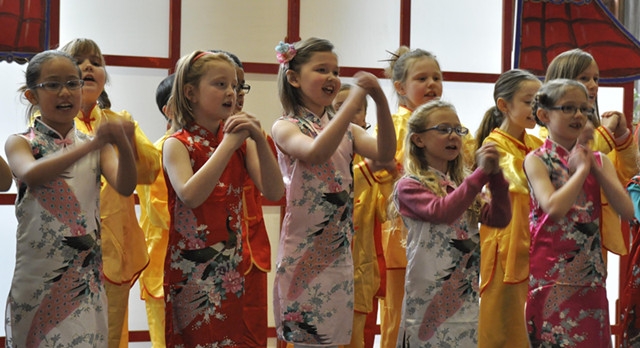 |
|
Children from a London kindergarten visit Chinatown dressed in Chinese costumes. [Photo/Xinhua] |
Increasing numbers of foreign leaders mention the dedication of overseas Chinese. In a New Year’s address, Britain's Prince William gave the message in Mandarin “Zhu ni men chun jie kuai le, yang nian da ji.” meaning “I wish you a happy Chinese New Year and good luck in the Year of the Sheep.”
Events and cultural activities are being held in Australia and Canada, where the Chinese Lunar New Year has become a buzzword. Performers and artists from China give shows to overseas audiences, including acrobatics, martial arts, dragon and lion dancing, shadow play, folk music as well as Beijing Opera.
In recent years, a growing number of foreigners have become cultural envoys in bridging the gap between nations through cultural exchanges. Stephanie Cheng, executive director of the Chinatown Community Cultural Center in Washington D.C, said the festivities provide an opportunity for local residents to learn more about the culture and customs of the Chinese, who make up a large proportion of the labor and education market. While in the eyes of Vivian Chik, who is from Hong Kong and now lives in Virginia, it is time for her children to better understand their culture and where their ancestry is from, which is extremely important for the second generation of immigrants.
Sinologist Endymion Wilkinson once compared Chinese Lunar New Year to Thanksgiving in his work Chinese History: A Manual, Revised and Enlarged published in 2000, indicating that the Spring Festival evokes resonances with both eastern and western people. With Chinese New Year gaining popularity, the world opens a window to embrace cultural diversity and an opportunity to unite people in a festival blessing all beings on earth.